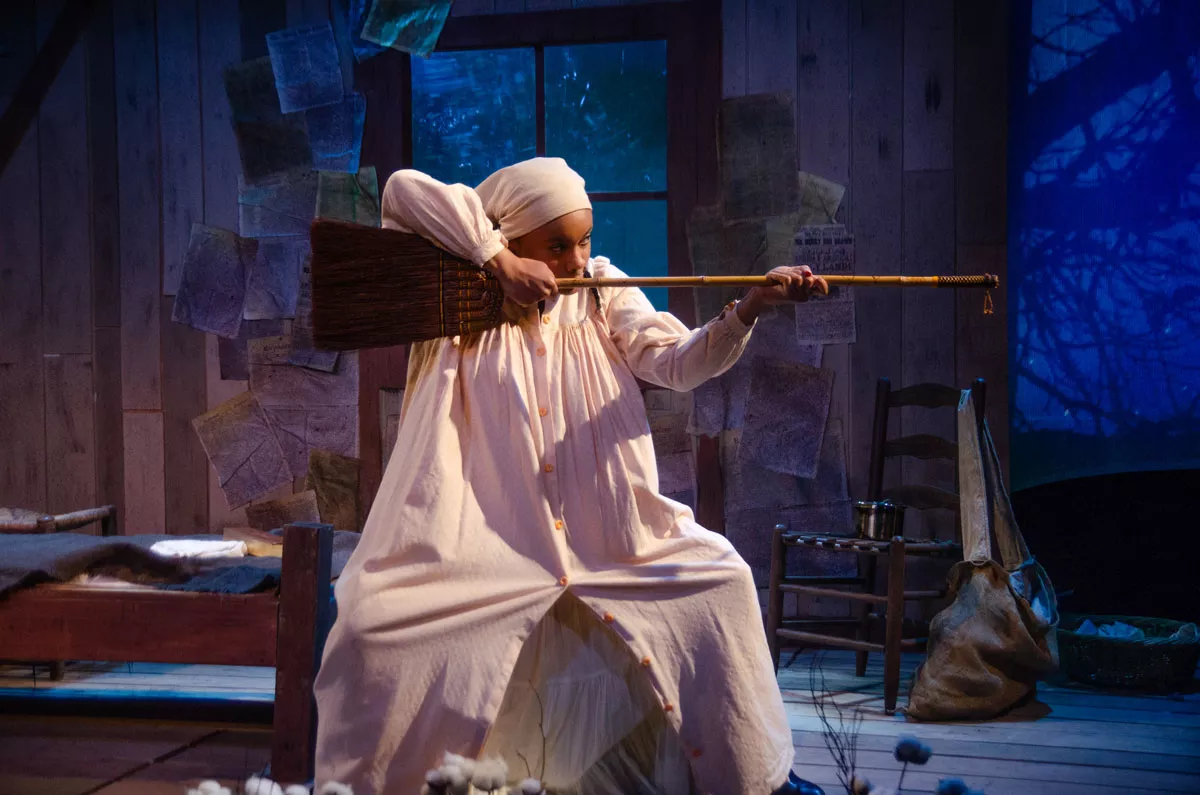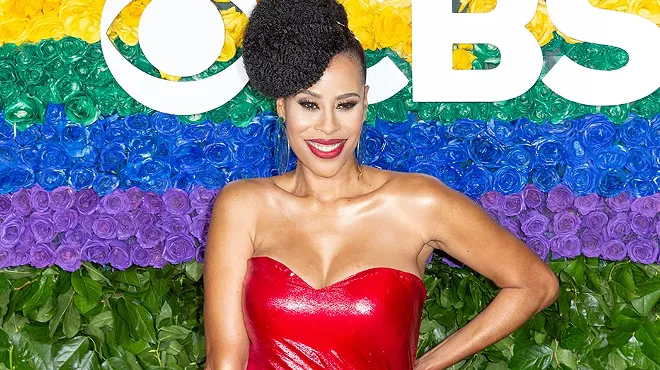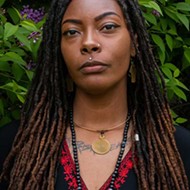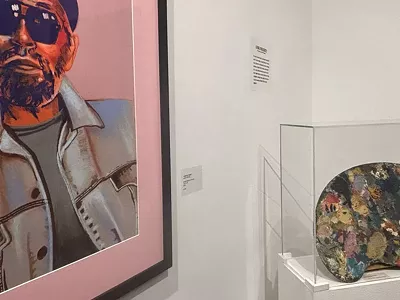In Detroit Public Theatre’s ‘The Confederates,’ history repeats itself
Dominique Morisseau’s brilliant play tackles post traumatic slave syndrome and the sister wound


Audio By Carbonatix
[
{
"name": "GPT - Leaderboard - Inline - Content",
"component": "35519556",
"insertPoint": "5th",
"startingPoint": "3",
"requiredCountToDisplay": "3",
"maxInsertions": 100,
"adList": [
{
"adPreset": "LeaderboardInline"
}
]
}
]
When there’s more than one Black woman in a work setting, it can sometimes feel like the Hunger Games. Our scarcity mindset is triggered and we feel like we must assert dominance to show who is better. There’s a reason for this, and it can all be traced back to slavery.
In her book, Post Traumatic Slave Syndrome, Joy DeGruy asserts that the multigenerational oppression of African Americans — from slavery to Jim Crow to the systemic racism that persists today — has caused things like internalized racism, family dysfunction, and poor mental health.
After watching Dominique Morisseau’s The Confederates, at Detroit Public Theatre, I wonder if Morisseau is familiar with DeGruy, as the play shows us Post Traumatic Slave Syndrome in action. The play, which opened at DPT on Feb. 8, jumps between two timelines — one during the Civil War, and another in present-day where a Black political science professor is grappling with institutional racism.
The two happen interchangeably in The Confederates, on opposite sides of the stage. An enslaved woman named Sarah is preparing to escape and fight for the Union as Sandra, the professor, is trying to figure out who put a photo of a wet nurse holding a white baby photoshopped with her face on her office door. Eventually, the Civil War-era action switches over to the present-day side of the stage, symbolizing the parallels of both time periods.
Several actors play two characters. Meredith Parker is both Missy Sue, the daughter of Sarah’s slave master who now wants to help her escape (while continuing to objectify her), and Candice — the well meaning but clueless student who is overcompensating for her white guilt.
Vanessa Mazhangara plays both Jade, the “other” Black professor in the modern-day story, and the house slave Luanne who is wary Sarah is going to take her place in the house. And Will Street is both the Union soldier Abner and Sandra’s opinionated student Malik.
It’s because they are the same archetype. As intergenerational trauma is passed down through our DNA, so are the behaviors developed from that trauma. The actors switch between these characters effortlessly, highlighting their similarities and nuances. And while Sarah and Sandra are played by two different actors, it isn’t lost on me that their names are similar.
Historical trauma is transmitted through generations — especially in cases like the Transatlantic Slave Trade, the Holocaust, and colonization — and influences the expression of our genes. This means the descendants of enslaved Africans continue to feel the effects of that trauma in their everyday lives.
Black women have the joy of juggling both intergenerational trauma from our enslaved ancestors and the “sister wound.” Sometimes also referred to as the “witch wound,” the sister wound is a deeply rooted patriarchal trauma that causes women to distrust each other. As divine feminine power, menstruation, and women’s innate intuition have been demonized and shunned throughout history, women have been pitted against one another to assert their value to men. For enslaved Black women, this looked like constantly proving their worth to their slave masters to avoid violence or death.
The sister wound appears as women viewing each other as competition. If a woman working in the same field as us is successful, we think it means there is no room for our own success. If we perceive another woman as prettier, smarter, or more talented, we resent her and surmise that she thinks she’s better than us.
The emotional turmoil of navigating our sister wound as Black women is made murky by another complicated question. Are we obligated to be friends with other Black women on the merit of our shared Blackness alone? What if we genuinely don’t like each other? Yes, we have a shared culture and relation to racism. We all have to grapple with the way we are perceived and received as Black women, based on preconceived notions of Blackness that have nothing to do with us as individuals.
But what if we genuinely don’t like each other? What if our wants, needs, preferences, and emotional maturity are completely antithetical? Is our shared Blackness in a sea of whiteness enough of a qualifier for friendship?
We see examples of all of this in Sandra and Jade’s relationship in the play. Jade accuses Sandra of being uppity because she has prestigious degrees, published books, and more professional experience. She’s convinced that Sandra will not vote for her tenure, because she’s “too Black,” and tries to convince her that they have to stick together.
While Morisseau’s writing is what makes the work special, the actors in Detroit Public Theatre’s production are more than up for the task of embodying such complex characters.
Rebecca Rose (Sarah) and Whitney Johnson (Sandra) both deliver powerful monologues at the end of the play, with imagery so potent that it is forever seared in my brain. That’s all I can say without giving too much away. The most important thing about the efficacy of live theatre is whether the audience believes the actors and Johnson convinced me that she was Sandra — a Black woman struggling to simply exist as a human beyond the weight of her race and sex.
Morisseau, who is from Detroit and is DPT’s Executive Artistic Producer, is behind other monumental plays like Detroit ’67, Ain’t Too Proud: The Life and Times of The Temptations, and Skeleton Crew. Unlike those three, The Confederates isn’t centered around Detroit history, but it asks us to look at a deeper thread of Black trauma that’s universal.
We all have implicit bias, as racism and white supremacy are the very fabrics from which the United States of America was woven. Many African Americans, myself included, have unknowingly internalized these biases toward ourselves and each other. White Americans have done the same, while many simultaneously fail to acknowledge how they benefit from the structures of racism.
That doesn’t mean any of us are at fault for having these biases. However, we must undergo deep introspection to uncover the root of these conscious and unconscious beliefs if we are ever to mend the wounds of the past and stop them from infecting our future.
The Confederates runs through March 16 at Detroit Public Theatre; 3960 3rd Ave, Detroit; detroitpublictheatre.org. Tickets are $49.
Published in conjunction with Midbrow.







